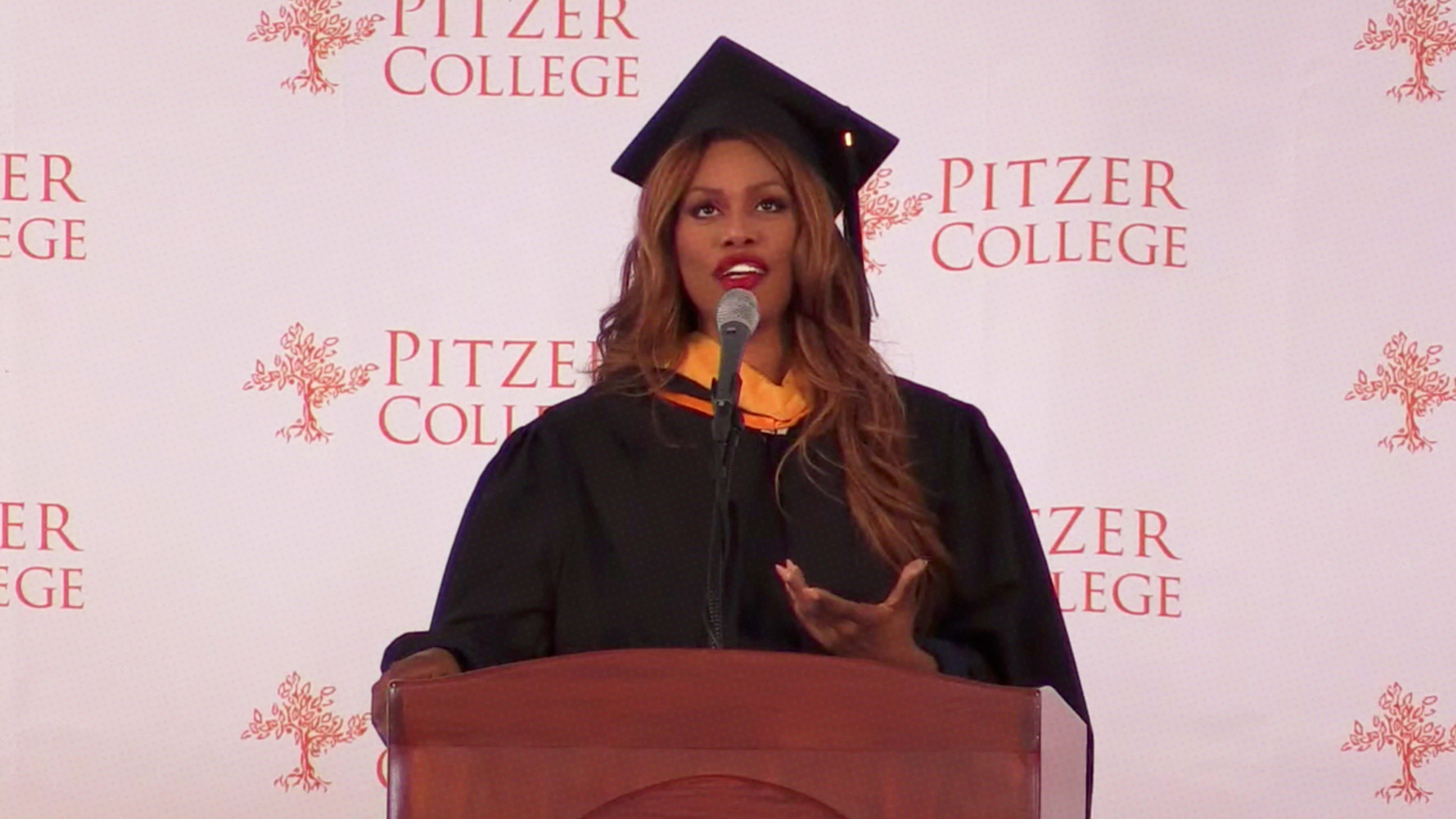Amid the roiling abortion debates with multiple states adopting the so-called “heartbeat bill,” actor and activist Laverne Cox retweeted a tweet that read, “Woman’s body. Woman’s right to choose. End of story.” It seemed harmless enough at first–she was using her platform to bring more awareness to the ongoing fight for women to have autonomy over their bodies. But when someone on Twitter asked where the representation was for trans men, Cox, who is a trans woman, found herself grappling with not only being called out publicly but also how to internalize the call-out and respond.
Thank you for this. This discussion has brought up much for me that I am processing. https://t.co/1rxbllLS5f
— Laverne Cox (@Lavernecox) May 15, 2019
“What I’ve learned about myself when I feel defensive, when I have that feeling, is that I have to get curious,” said Cox during her commencement speech at Pitzer College this past weekend. “Because if I feel defensive, something is going on.”
What was going on was the fact that Cox was overlooking intersectionality for the sake of simplicity.
“Can I just be in solidarity with my sisters on this issue? Do we have to like make it about all of the complicated nuances of the issue?” Cox recalled asking herself. “I thought, we really don’t need mainstream America to be thinking about transgender men, specifically, pregnant and having babies. It’s really not going to advance the cause of transgender people.”
Cox eventually replied, thanking the person for bringing up the issue and that she was still processing.
The idea of a trans man getting pregnant is one that isn’t discussed in mainstream media, which is all the more reason it should be. When debates around abortion are discussed, there’s never specific language around someone who was assigned female at birth but identifies as male. Cox said:
If I were that trans man, I would really want to have language that incorporated and included my experience. Thinking about this reminded me that language is also a place to struggle, but that this isn’t just about being politically correct. This is not just about virtue signaling, that when we use language that excludes groups of people on pertinent issues, it can jeopardize our health and well-being. Language that that is appropriate in a fully inclusive way is a matter of life and death for so many people out there. For me, as a trans woman, I can’t get pregnant. I’m very grateful for that! But it’s an issue that I don’t actually have to think about. If you don’t have to think about and deal with something in our own lives that is an incredible privilege. But if we are the person who has to deal with the issue, it is so important to be inclusive and to have our issues dealt with.
What this brought up for me is that as you go out into the world, you’re going to be faced with a lot of difficult decisions, a lot of things that will make you uncomfortable, that are complicated and nuanced issues. And sometimes you might just want to keep it simple. Can we focus on this part of the issue right now and just leave this out–leave this group of people out? And what I would like to remind you of today is that when we are leaving people out, we are not really doing the work to be inclusive.
Watch Cox’s full speech below, which starts at 51:20:
Recognize your brand’s excellence by applying to this year’s Brands That Matter Awards before the early-rate deadline, May 3.
